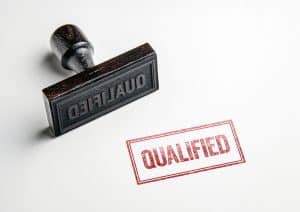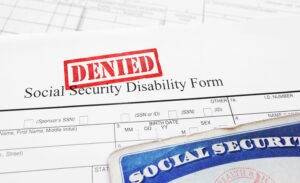
In some cases, you can qualify for Social Security Disability Insurance (SSDI) even if you are collecting benefits from another source. The type of additional benefits you receive will determine if there is any reduction in the amount of your monthly SSDI payment.
Can I Collect Other Benefits in Addition to SSDI Payments?
Yes. You can collect benefits in addition to SSDI payments. However there are different rules depending on what types of benefits you are collecting in addition to your SSDI benefit payments.
The Social Security Administration does not bar you from collecting pension benefits in addition to SSDI. As long as your pension does not prohibit you from collecting SSDI benefits you can generally collect both.
In addition to drawing benefits from a private pension, you can also collect money from stocks or other investments, rental property, or selling assets without penalty. The income of your spouse or others living in your household is also irrelevant when the SSA determines your qualifications and calculates your monthly payment.
Your SSDI benefit payments may be offset if the other benefits you are collecting are from Worker’s Compensation or your additional source of income is from another government agency. This happens most frequently with government retirees, although it can happen because of workers’ compensation plans and similar programs.
We can advise you if this is a situation you may face. Our attorneys can evaluate your financial history to determine if you qualify for SSDI benefits.
40+ years of experience from strong, knowledgeable, compassionate attorneys.
Start A Free EvaluationDo I Qualify for SSDI If I Receive a Pension?
You are not disqualified for SSDI benefits based on your additional unearned income. However, you still need to meet strict criteria to qualify for and collect these benefits.
We can help you understand how your work credits, income limits, and impairments affect your eligibility for SSDI benefits. We can also help you file your claim if you qualify.
Work Credits
SSDI requires a certain number of work credits based on your age and work experience. If you held a job and earned at least the amount needed to qualify for four quarters of coverage each year over the last five years, you most likely meet the work credits obligation.
The number of credits you need varies by age. Younger applicants need fewer credits to qualify. We can determine how many work credits you have and how many are necessary to receive SSDI payments.
Income Limits
There is a limit to how much you can earn per month in a job. This earned income must remain below the substantial gainful activity limit to qualify for SSDI. The SSA adjusts this limit each year.
The 2022 substantial gainful activity limit is $1,350 per month. This includes only job-related income and any income earned from being self-employed. There are also some additional requirements when you are self-employed.
The goal of this limit is to ensure applicants truly cannot earn a living wage because of their disability, not to place a limit on how much overall income you have coming in.
Qualifying Impairment
The most difficult test to qualify for SSDI is to identify a well-documented disability that prevents you from working and also meets the SSA’s rules. The SSA publishes strict criteria in its impairment listings, outlining dozens of medical conditions that could cause a person to be unable to work.
In addition, they only approve applicants whose medical records, treatment notes, laboratory and clinical results, and imaging scans show that the disability results in a very limited residual functional capacity.
Usually, this means they are unable to return to their previous job, work any job they have the qualifications for, or work a job that only requires unskilled tasks. The SSA requires a high level of documentation to approve your condition as a qualifying impairment. We can help you understand if your medical condition meets the SSA’s qualification criteria.
We know you’re hurting. We can help. Free case evaluations, home and hospital visits.
Contact Us Now For HelpHow a Lawyer From Our Firm Can Help
We know a denial of benefits can be stressful, and our lawyers want to see what we can do to help. We can review your original claim and appeal a denial of benefits.
Filing a Claim for SSDI Benefits
When applying for benefits, even minor mistakes made while filling out the paperwork can cost you. When you work with us, we will review your claim to determine why you received a denial.
Appealing a Denial of SSDI Benefits
If you received a denial of SSDI benefits, we can help you. The SSA appeals process is complex, but we can navigate you through it.
We will begin by submitting a request for reconsideration. If the SSA upholds its original decision, we can ask for a hearing with an Administrative Law Judge (ALJ). From there, we may need to seek a review from the Appeals Council. Lastly, we can bring your appeal to Federal Court if needed.
When we handle your appeal, we assume all of the paperwork involved so you can have peace of mind. We can also prepare you for a hearing with an ALJ.
You need an attorney with the experience and dedication to give your case the care it deserves.
Start A Free EvaluationConnect with a Disability Lawyer From Berger and Green
The attorneys at Berger and Green understand how important SSDI benefits are to you and your family. can explain the qualifications for SSDI benefits and how your other income may affect your approval.
For help understanding which benefits you can draw simultaneously, contact our disability firm at (412) 661-1400.










